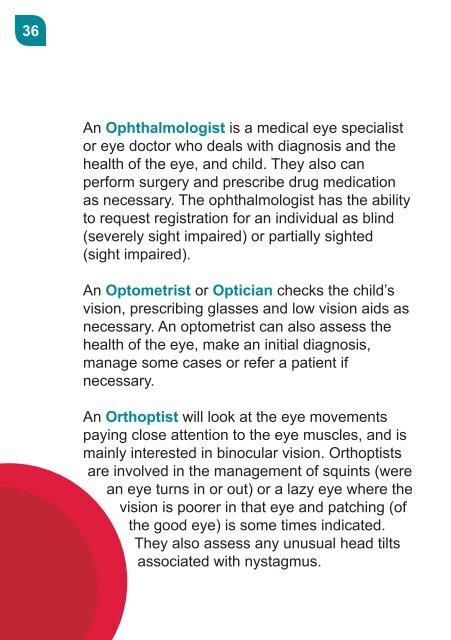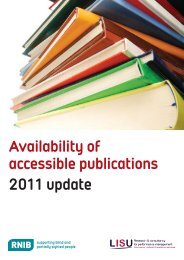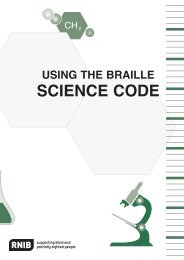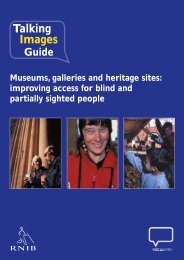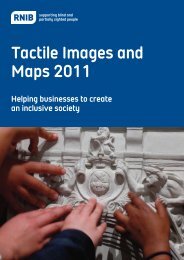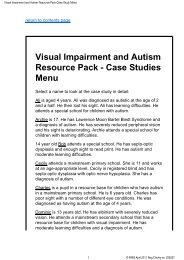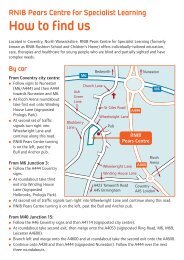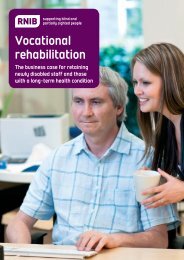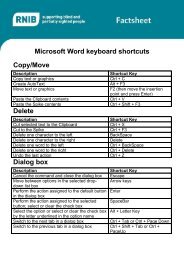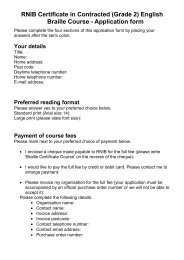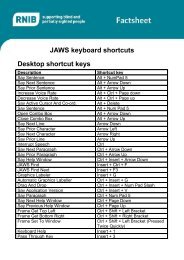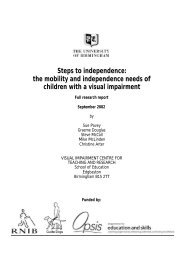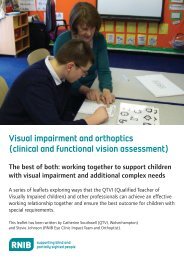RNIB NI's Looking Ahead, A Parent's Guide (PDF, 560kb)
RNIB NI's Looking Ahead, A Parent's Guide (PDF, 560kb)
RNIB NI's Looking Ahead, A Parent's Guide (PDF, 560kb)
Create successful ePaper yourself
Turn your PDF publications into a flip-book with our unique Google optimized e-Paper software.
Master <strong>RNIB</strong> Booklet_Layout 1 10/09/2012 15:10 Page 36<br />
36<br />
An Ophthalmologist is a medical eye specialist<br />
or eye doctor who deals with diagnosis and the<br />
health of the eye, and child. They also can<br />
perform surgery and prescribe drug medication<br />
as necessary. The ophthalmologist has the ability<br />
to request registration for an individual as blind<br />
(severely sight impaired) or partially sighted<br />
(sight impaired).<br />
An Optometrist or Optician checks the child’s<br />
vision, prescribing glasses and low vision aids as<br />
necessary. An optometrist can also assess the<br />
health of the eye, make an initial diagnosis,<br />
manage some cases or refer a patient if<br />
necessary.<br />
An Orthoptist will look at the eye movements<br />
paying close attention to the eye muscles, and is<br />
mainly interested in binocular vision. Orthoptists<br />
are involved in the management of squints (were<br />
an eye turns in or out) or a lazy eye where the<br />
vision is poorer in that eye and patching (of<br />
the good eye) is some times indicated.<br />
They also assess any unusual head tilts<br />
associated with nystagmus.


